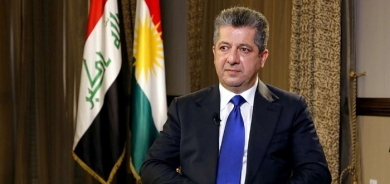Siri Gloppen: Without rule of law good governance is not possible. But still, the rule of law — even when it is implemented – is not enough to safeguard democracy
January 7, 2012
Exclusive Interviews

Siri Gloppen is Research Director at Michelsen Institute for Development and Justice Researches in Norway, and a political scientist with a research focus in the intersection between law and politics. We have contacted the Professor Gloppen to discuss the systems of governance and the relations between the elements of governance with her and she replied to our questions in an exclusive interview to Gulan Magazine as the following:* Governance and People are two main elements in any society, but the relation between these two elements is not often balanced and people always feel unsatisfied with governance. The question is, in your view; how the relations between governance and people are organized?
- The challenge is to create a system where those who are in government seek to govern for the benefit of the whole society and not a small elite– ant that they are seen to do so. Several factors may contribute towards creating relations of shared interest and trust between the people and those who govern them.
* The level of social inequality is very important. If the governing elite also represents a social and economic elite (either because they are drawn from the elite or because the positions are generously rewarded so that they turn in to the elite) this is very difficult to achieve. If political positions are like any other job so that people do not have (or are seen to have) self-interested economic motives for wanting such a position, it is easier to build relations of trust. And there are fewer reasons for politicians to seek to stay in their positions by all means. Such issues of political economy should not be underestimated.
* Opportunities for meaningful participation by all who are interested - and a perceived responsiveness by those in government is very important. This requires openness with regard to information (including a free press), possibilities for input in early stages of decision making-processes, and active steps to enable different groups to make a contribution -- including vulnerable and marginalized groups. Participation can go beyond elections, including hearing processes in relation to legislation and policy making and participatory budgeting processes (with Porto Allegre in Brazil as the most famous example).
* The existence of accountability mechanisms are also important. Again, transparency and a free press is important, but also real possibilities for replacing representatives who are corrupt or do not perform.
* Local democracy may also be helpful in making people feel closer to government, although minorities may be more at risk at local level.
* Many governments are called by “People’s Government”, meaning; such governments are able to provide adequate services and are responsive to people’s needs. But many of the governments that are claiming to be democratic governments, they fail to be as responsive as they should be. In your opinion; what are the differences between People’s Government and the Democratic Government?
- In a simplified way, "people's government" as understood in the traditional socialist states defined themselves more as "government for the people" (where the focus is less on who decides that that what is decided is "right" in accordance with a socialist ideology which puts emphasis on the welfare of all, social security is here more important than freedom). In democratic systems the core idea is "government by the people" - (with focus on who decides. This is based on the belief that if the people decide it will be the best society for all – freedom to participate in political decisions is here seen as the key also to social security).
Of course we know that both systems in many cases have problems in practice and do not function according to theory. We know, historically that "people's democracy" have had a tendency to turn authoritarian, and often have benefited a ruling elite who preserve themselves. Democratic governments can also be captured by a political and economic elite – in particular when associated with free market democracy — and in those contexts it seems to add to a spiral of increasing social and economic inequality.
* Many experts believe that it is unnecessarily for a democratic government to have a good governance, and there are often non democratic governments but they have good governance though. In your view; why many of those government that are democratically elected fail to provide good governance?
- I agree in your observation that a number of democratization processes have produced electoral democracies with poor social and economic performance. As a result of the growing realization that democracy in itself will not necessarily produce good governance, we also see a growing disenchantment with democracy as such. Scholars and development practitioners have started questioning whether chances of establishing a working democracy is better if strong governing institutions/ good governance is in place prior to democratization (and, some would argue, perhaps more difficult to establish in a context of democratization)
Why is it that democratic regimes fail to produce good governance? This can have a number of causes
* I think – as noted above – that high levels of social and economic inequality generally make good governance difficult. Those who govern will normally belong to the elite - or will tend to use their positions to get there - and the more unequal a society is, the more they will be in a situation where they have little in common with ordinary people. Their interests are not the same as those they govern -- they do not use public hospitals or send their children to government schools, and thus stop having a personal interest in many of the institutions they build and sustain. Or they have other interests in them – for example the political elite may see the police/army/justice apparatus primarily as institutions to protect them from internal unrest, not as providing a service to the people. In less unequal societies, when politicians act in their own interest, this do not to the same extent undermine good governance as seen from the rest of society.
* In many new democracies economic conditions are also very challenging compared to more established democracies — there are, simply put less resources for delivering governance, which may make it t more difficult. The population is often also less educated, which also makes it more challenging-
* another factor that may prevent good government is weak accountability institutions – poor governance is not effectively sanctioned. Elections every 4 or 5 years is not enough to secure accountability, particularly where the historical context is such (as it is in many new democracies) that there is a liberation party that commands such strong loyalty that it is unlikely to be removed from government even with weak performance. The fact that executives often have strong powers, add to the problems.
* In the developing countries and at the very beginning of democracy building process, instead to provide prosperity in the society and services to people, experts rather believe corruption and the misuse of government’s power exist. In your view; how is it possible to build the society on free market bases?
- As you will understand from my responses above, I think it is quite difficult to build a democratic society in a free market society. A free market tends to increase inequalities in ways that undermine the basis for a democratic society. I think chances for developing sound democratic governance are much better where the market is more regulated and there are redistributive institutions that can preserve the fundamental equality between citizens that is required for political institutions to function democratically in practice.
* During the democracy building process and economy transitional phase from State Economy to Market Economy, we sense that most issues of the developing countries are economical ones. Meaning; instead to have free market we see that the market is once gain monopolized. In your view; why do you think that market monopoly rises during transitional stages?
- Transitional phases represent great opportunities for those who are in a strong position – politically and economically — to take advantage of the situation and consolidate their position and for example convert political resources into economic capital. And in a situation with great inequalities, an unregulated market economy will present further opportunities for enrichment and deepen inequalities. Often the "new haves" will also be very well politically connected and also able to capitalize on political connections and for example prevent anti-monopoly legislation.
To prevent this from happening, I think it is crucial to avoid rapid liberalization, to have much stronger barriers against "crony-liberatization" where assets for example are transferred to political loyalists (which in the next instance also undermines accountability relations)
* Contemporary governance means the government that starts direct dialogue with its population. How do you think that dialogue can be made between authorities and people, and how the understanding of governance is going to be in accordance with this dialogue?
- Most understandings of democracy presupposes a dialogue between the people and those elected to positions sf power, but this is most central in the deliberative democracy tradition (spearheaded by Jürgen Habermas), where public deliberation and considered judgement is seen as the very core of democracy and a way to reach the best decisions.
Many governments have put in place institutions to encourage dialogue around policies and laws (consultation processes, public hearings), including in on-line forums, and some have introduced participatory budgeting or citizens' scorecards to follow up on implementation. Still this could be better utilized and lot more could be done. Not least in terms of developing capacity among the more marginalized parts of society so that they can participate in an equal and meaningful way, and with regard to developing better mechanisms for taking public opinion into account, including though more direct encounters between elected officials and different parts of the public around difficult and important political issues.
* Last Question: Another problem in democracy building process is; the way of implementing the rule of law and liberties’ protection, many experts think that the rule of law shall come before democracy. In your view; how far do you think that the rule of law is important for building democracy?
- Rule of law is very important for building democracy. It is crucial to securing personal liberties (both in democratic and non-democratic regimes) and to preserve the democratic process itself through protecting civil and political rights and the rules of the political process. Without rule of law good governance is not possible. But still, the rule of law — even when it is implemented – is not enough to safeguard democracy. It is important to not just look at the rights provisions in the constitution, but also look at the way the democratic system is composed – the division of powers, and in particular the power of the executive. So, while a democratic system cannot function without the rule of law, it is also not sufficient, and it is important to see beyond the "parchment barriers".















